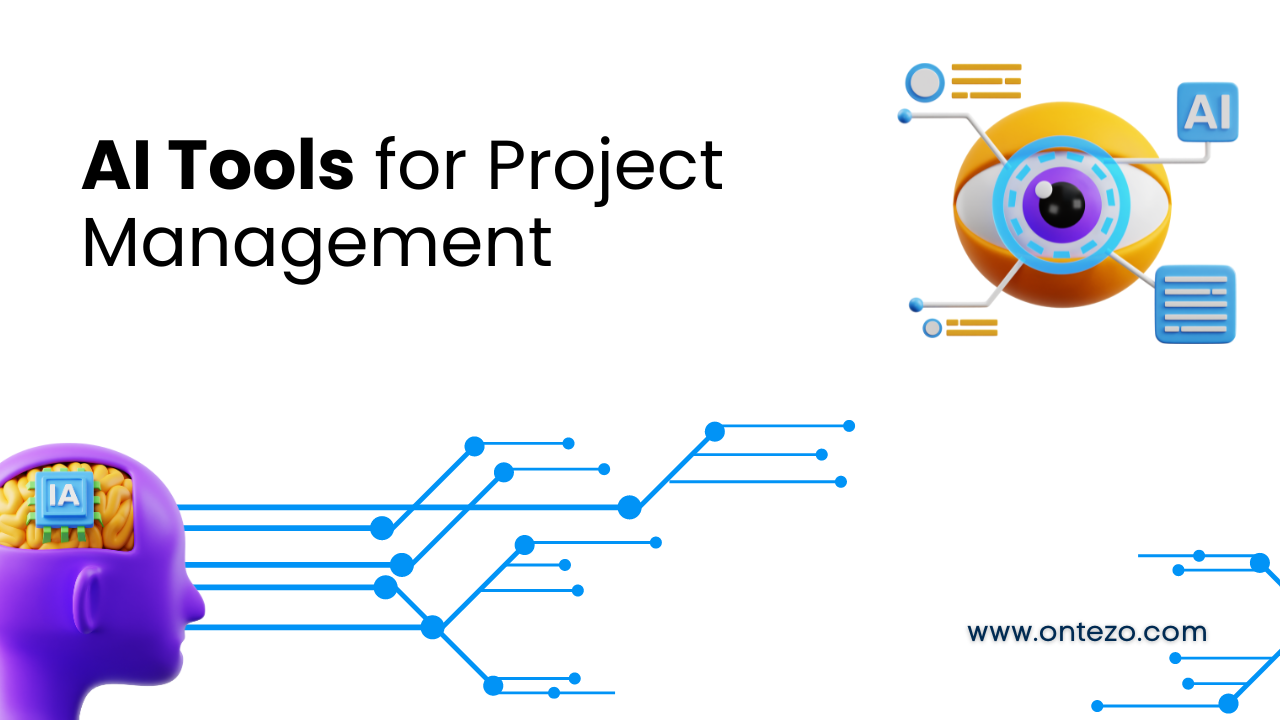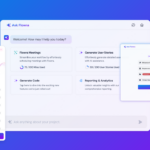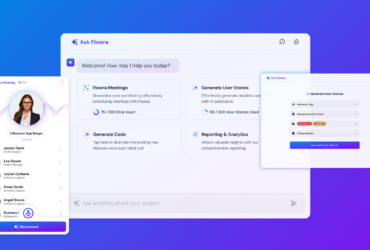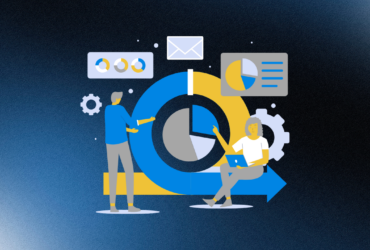
How to Leverage AI Tools for Efficient Project Management?
- July 29, 2024
- by
- tehreem
Imagine a world where project management is seamless, tasks are automated, and data-driven insights lead every decision. This isn’t a far-off fantasy but a reality made possible by leveraging AI tools for efficient project management. In today’s fast-paced business environment, staying ahead requires more than just traditional methods. It’s about embracing innovative solutions like Artificial Intelligence (AI) to streamline workflows, optimize resources, and enhance decision-making.
If you’re curious about how AI can transform your project management processes, read on to discover the incredible benefits and practical steps to integrate these tools into your daily operations.
Understanding AI in Project Management
AI in project management refers to the use of artificial intelligence technologies like machine learning, natural language processing (NLP), and predictive analytics to enhance various aspects of managing projects. These technologies can automate repetitive tasks, provide insights through data analysis, and even predict potential risks and outcomes. By leveraging AI, project managers can focus on more strategic aspects of their projects, such as stakeholder engagement and creative problem-solving.
Benefits of AI Tools in Project Management
- Automation of Repetitive Tasks AI excels in automating mundane and repetitive tasks such as scheduling meetings, sending reminders, and updating project statuses. This not only saves time but also reduces the likelihood of human errors.
- Enhanced Decision-Making With AI’s ability to analyze vast amounts of data, project managers can make informed decisions based on real-time insights. This data-driven approach helps in identifying trends, forecasting project outcomes, and making adjustments as needed.
- Improved Risk Management AI tools can predict potential risks by analyzing historical data and identifying patterns. This proactive approach allows project managers to mitigate risks before they escalate, ensuring smoother project execution.
- Efficient Resource Allocation By analyzing project needs and available resources, AI can optimize resource allocation, ensuring that the right resources are used at the right time. This not only improves efficiency but also helps in managing costs effectively.
Key AI Tools and Technologies
Various AI-powered tools can revolutionize project management. For instance, platforms like Asana and Trello incorporate AI features to streamline task management and enhance team collaboration. These tools offer functionalities such as predictive task assignments, automated workflow suggestions, and real-time progress tracking. Integration with existing project management software ensures a seamless transition and minimal disruption to workflows.
Implementing AI in Project Management
Integrating AI into your project management processes requires careful planning and execution. Here are some practical steps:
- Identify Suitable Tasks for Automation Start by identifying repetitive and time-consuming tasks that can be automated using AI. Examples include data entry, report generation, and routine communications.
- Choose the Right Tools Select AI tools that align with your project management needs and integrate well with your existing systems. Tools like Monday.com and Jira offer robust AI features tailored for different project management styles.
- Train Your Team Equip your team with the necessary skills to work alongside AI tools. Provide training sessions and resources to help them understand how to leverage AI for improved efficiency.
- Monitor and Adjust Regularly monitor the performance of AI tools and make adjustments as needed. This includes updating algorithms, refining workflows, and gathering feedback from the team.
Measuring the Impact of AI on Project Performance
To assess the effectiveness of AI tools, it’s essential to track key performance indicators (KPIs) such as project completion time, budget adherence, and resource utilization. Establish baseline metrics before implementing AI and continuously monitor these KPIs to evaluate improvements. Calculating both tangible returns, like cost savings, and intangible benefits, such as enhanced team morale, provides a comprehensive view of AI’s impact.
Ethical Considerations and Challenges
While AI offers numerous benefits, it’s crucial to address ethical concerns such as data privacy, transparency, and accountability. Implement stringent data protection measures and ensure that AI tools provide clear explanations for their decisions. It’s also essential to balance automation with human judgment, particularly in areas requiring emotional intelligence and creativity.
Future Trends in AI for Project Management
The future of AI in project management looks promising, with emerging trends like augmented intelligence and integration with the Internet of Things (IoT). AI systems are expected to become more autonomous, adapting to changing project conditions and making real-time decisions. As these technologies evolve, project managers must stay informed and be prepared to adapt to new tools and methodologies.
What are the best AI tools for project management?
Popular AI tools include Monday.com, Trello, Asana, and Jira, each offering unique features tailored for different project management needs.
How can AI improve project outcomes?
AI improves project outcomes by automating tasks, providing data-driven insights, optimizing resource allocation, and enhancing risk management.
What are the ethical concerns associated with AI in project management?
Key ethical concerns include data privacy, transparency in decision-making, and maintaining a balance between automation and human expertise.
Leveraging AI tools for efficient project management is no longer a futuristic concept but a present-day reality. By embracing these technologies, project managers can streamline operations, make data-driven decisions, and optimize resource use. As AI continues to evolve, staying informed and adaptable will be crucial for maximizing its benefits. The time to integrate AI into your project management processes is now, ensuring your projects are not only well-managed but also positioned for success.







4 Comments
From Lead to Client: Seamless Sales Pipeline Management with Ontezo - Ontezo Blogs
31st Jul 2024 - 1:29 pm[…] How to Leverage AI Tools for Efficient Project Management? […]
3 Simple Steps to Increase Team Productivity - Ontezo Blogs
2nd Aug 2024 - 11:31 am[…] How to Leverage AI Tools for Efficient Project Management? […]
The Power of AI in Project Management: How ONtezo Optimizes Your Work - Ontezo Blogs
5th Aug 2024 - 12:03 pm[…] How to Leverage AI Tools for Efficient Project Management? […]
How Much Time Should You Spend on Estimates for Your Project Tasks? - Ontezo Blogs
26th Sep 2024 - 11:18 am[…] and using tools like PERT and Planning Poker, you can improve your estimates and better manage your project timelines. And remember, learning from previous estimation errors will help you refine your process for future […]